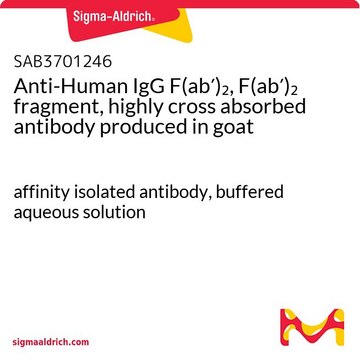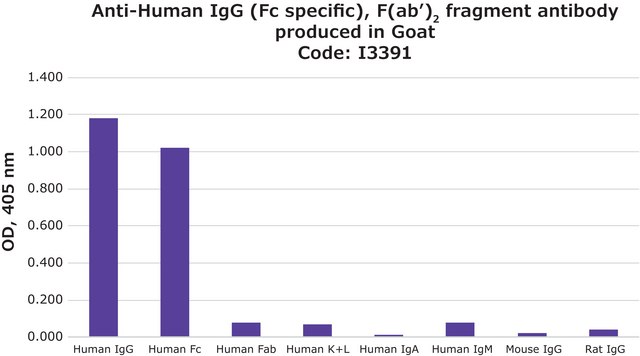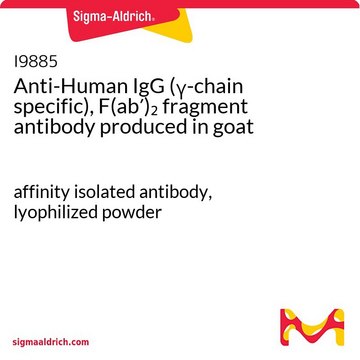I5260
Anti-Human IgG (Fab specific) antibody produced in goat
affinity isolated antibody, buffered aqueous solution
Synonym(s):
Fab-Specific Antibody
Sign Into View Organizational & Contract Pricing
All Photos(1)
About This Item
Recommended Products
biological source
goat
Quality Level
conjugate
unconjugated
antibody form
affinity isolated antibody
antibody product type
secondary antibodies
clone
polyclonal
form
buffered aqueous solution
technique(s)
indirect ELISA: 1:50,000
quantitative precipitin assay: 2.0 mg/mL
shipped in
dry ice
storage temp.
−20°C
target post-translational modification
unmodified
Looking for similar products? Visit Product Comparison Guide
Related Categories
General description
Anti-Human IgG (Fab specific) antiserum is produced in goat using purified human IgG Fab fragment as the immunogen. Affinity isolated antibody is obtained from goat anti-human IgG antiserum by immunospecific purification which removes essentially all goat serum proteins, including immunoglobulins, which do not specifically bind to the Fab fragment of human IgG. IgG is a larger molecule with a molecular weight of 150 kilo daltons (kDa). IgG has two light chains (L) and two heavy chains (H). The light chain can be either lambda (λ) or kappa (κ) chain. Functionally, immunoglobulins have constant region and variable region. Light chain has one variable region in the N-terminal VL and followed by one constant domain CL. The light chain is approximately about 25 kDa. The heavy chain has one variable region in the N-terminal and followed by three constant domains. In between the first (C1H) and second constant (C2H) domain in the spacer hinge region which connects both the heavy chains. Each heavy chain is about 55 kDa.
Specificity
Goat anti-human IgG (Fab specific) antibody reacts specifically with Fab fragment of human IgG and shows no reactivity for Fc fragment of human IgG. This product has no interspecies cross reactivity for mouse and rat IgG.
Immunogen
Purified human IgG Fab fragment.
Application
Anti-Human IgG (Fab specific) antibody produced in goat is effective as a second antibody reagent in immunoassay procedures. It may be used:
- as starting material for conjugates using enzymes or fluorescent dyes
- in enzyme linked immunosorbent assay
- as a cross-linking antibody in internalisation of 125I-IgG by streptolysin-O-permeabilised cells
- as capture antibody in enzyme-linked immunosorbent assay (ELISA) for detection and semiquantitation of Fab
- in electrophoresis and immunoelectrophoresis
Biochem/physiol Actions
Enzymatic cleavage of IgG yields antigen-binding (Fab) and effector activating (Fc) fragments. IgG treatment with papain produces two Fab fragments and one Fc fragment. IgG treatment with pepsin produces (Fab′)2 fragment alone. IgG antibodies regulate several functions such as complement activation and phagocytosis. Thus they play a crucial role in facilitating cytological immune responses. Anti-human IgG (Fab specific) antibody can be used in Ouchterlony double diffusion. Due to lack of interspecies cross reactivity to mouse or rat ascites fluids, this antibody is also ideal for screening human monoclonal antibodies produced by hybridoma cells grown in vivo.
Physical form
Solution in 0.01 M phosphate buffered saline, pH 7.4, containing 15 mM sodium azide as preservative
Disclaimer
Unless otherwise stated in our catalog or other company documentation accompanying the product(s), our products are intended for research use only and are not to be used for any other purpose, which includes but is not limited to, unauthorized commercial uses, in vitro diagnostic uses, ex vivo or in vivo therapeutic uses or any type of consumption or application to humans or animals.
Not finding the right product?
Try our Product Selector Tool.
Storage Class Code
12 - Non Combustible Liquids
WGK
WGK 1
Flash Point(F)
Not applicable
Flash Point(C)
Not applicable
Choose from one of the most recent versions:
Already Own This Product?
Find documentation for the products that you have recently purchased in the Document Library.
Customers Also Viewed
Our team of scientists has experience in all areas of research including Life Science, Material Science, Chemical Synthesis, Chromatography, Analytical and many others.
Contact Technical Service
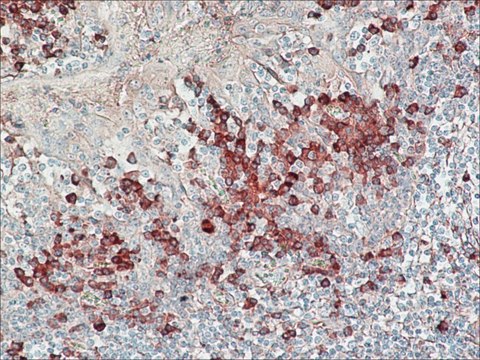
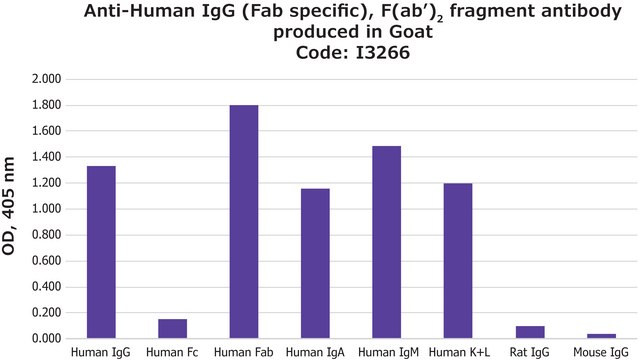

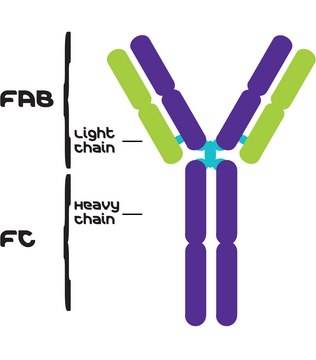
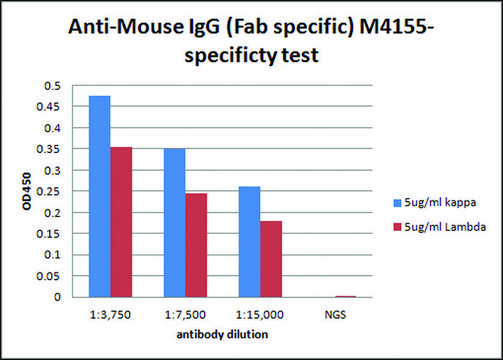

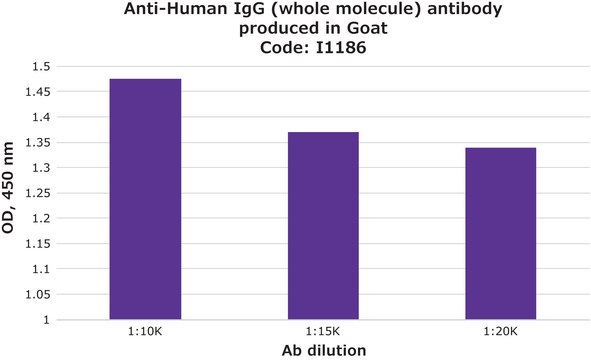

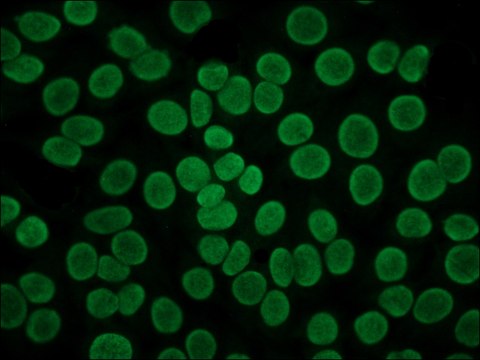

![Monoclonal Anti-Human IgG1 (Fab specific) [G1m(f)] antibody produced in mouse clone SG-16, ascites fluid](/deepweb/assets/sigmaaldrich/product/images/245/879/4f218cfe-aa20-409d-9449-056eba5e3d7b/640/4f218cfe-aa20-409d-9449-056eba5e3d7b.jpg)
